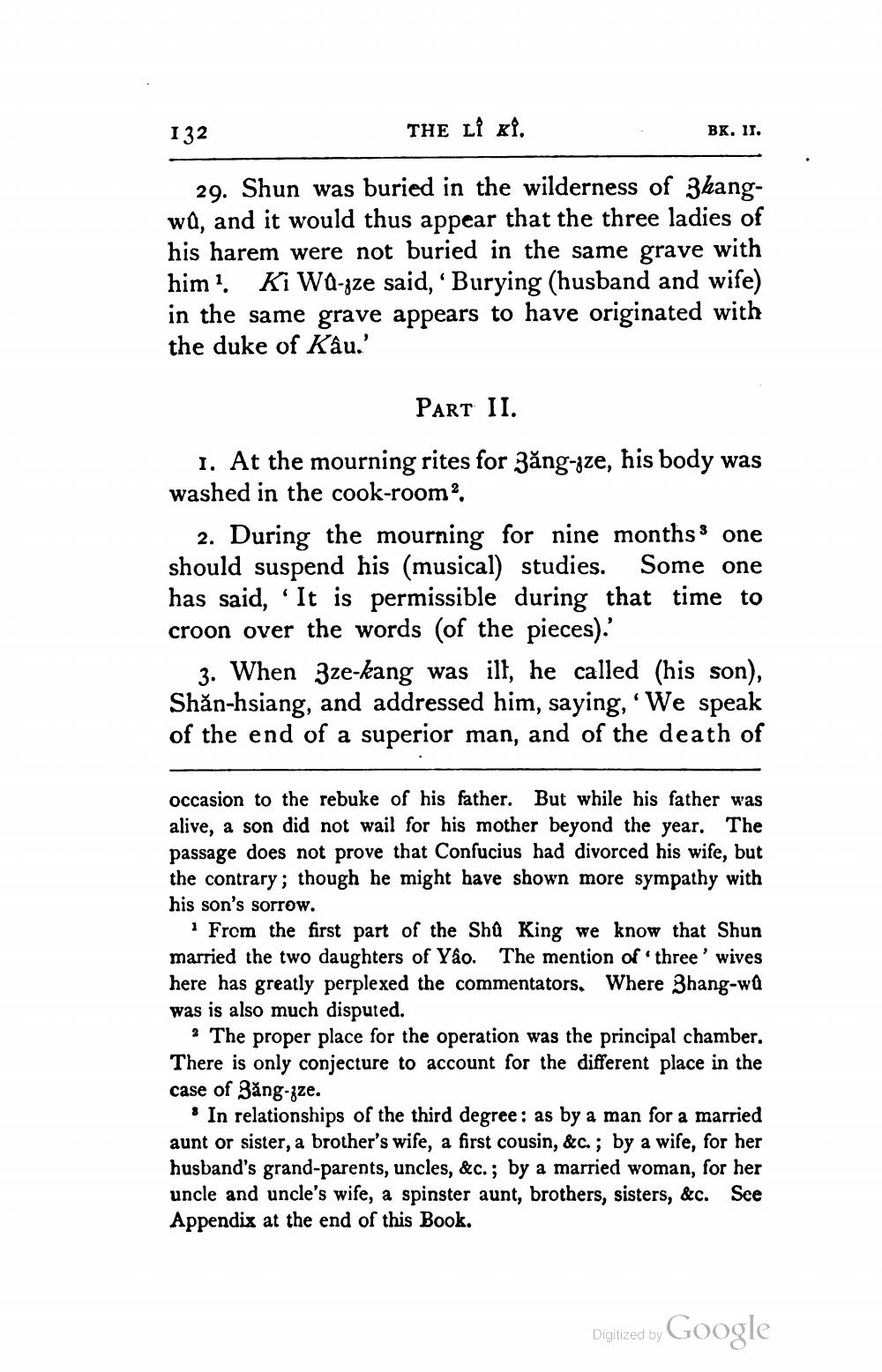________________
THE LI XI.
29. Shun was buried in the wilderness of 3hangwa, and it would thus appear that the three ladies of his harem were not buried in the same grave with him 1. Ki Wa-ze said, ' Burying (husband and wife) in the same grave appears to have originated with
the duke of Kâu.'
132
BK. II.
PART II.
1. At the mourning rites for 3ăng-ze, his body was washed in the cook-room2.
2. During the mourning for nine months one should suspend his (musical) studies. Some one has said, 'It is permissible during that time to croon over the words (of the pieces).'
3. When 3ze-kang was ill, he called (his son), Shăn-hsiang, and addressed him, saying, 'We speak of the end of a superior man, and of the death of
occasion to the rebuke of his father. But while his father was alive, a son did not wail for his mother beyond the year. The passage does not prove that Confucius had divorced his wife, but the contrary; though he might have shown more sympathy with his son's sorrow.
1 From the first part of the Shû King we know that Shun married the two daughters of Yão. The mention of three' wives here has greatly perplexed the commentators. Where 3hang-wû was is also much disputed.
2 The proper place for the operation was the principal chamber. There is only conjecture to account for the different place in the case of Băng-zze.
In relationships of the third degree: as by a man for a married aunt or sister, a brother's wife, a first cousin, &c.; by a wife, for her husband's grand-parents, uncles, &c.; by a married woman, for her uncle and uncle's wife, a spinster aunt, brothers, sisters, &c. See Appendix at the end of this Book.
Digitized by
Google




